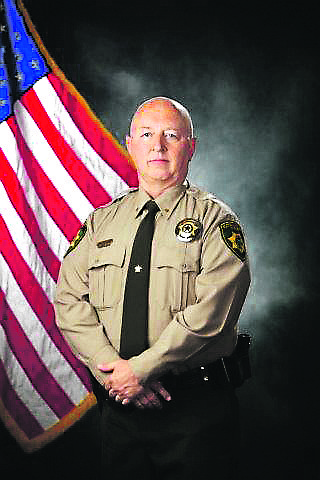Sheriff to Governor: Accelerate reopening
Wolfinger urges special consideration on county-by-county basis
COEUR d’ALENE — Kootenai County Sheriff Ben Wolfinger is requesting that Gov. Brad Little consider an “accelerated re-opening for specific counties who continue to show no or very little growth in confirmed cases” of coronavirus.
“I believe that this will be seen as a gesture of good will for those who have done their best to minimize exposure, and contain the virus,” he wrote in a Monday letter.
Wolfinger said he decided to write the letter because he thought it was a point of view that could help the governor as he considers his next steps.
Wolfinger believes a county-by-county approach in dealing with the virus may be better than the statewide one that Little has employed.
“I realize that you are in a very difficult position, but as we struggle to recover from the pandemic and return to whatever the new normal may be, it is more and more apparent that a one size fits all approach to the recovery is not practical nor economically sound,” Wolfinger wrote.
He pointed out that in the five northern counties there have been a total of 68 cases, with 64 in Kootenai County — only one new one last week — and four in Bonner County.
Boundary, Benewah and Shoshone have not seen one confirmed case, Wolfinger noted. Today, there are only four active cases and they are all home and being monitored by the Panhandle Health District.
Statewide, nearly 72% of all cases show they are recovered, with the recovered number increasing faster than confirmed new cases each day.
Wolfinger also said Little’s 14-day quarantine for people from out of state “is impossible to enforce with the influx of people from Washington State who come here to recreate."
“No law enforcement entity has the staffing to patrol the golf courses, boat ramps and other recreational sites to do such enforcement. On top of that, hundreds of Washington residents have waterfront secondary homes in Northern Idaho, and can ostensibly claim to be quarantining at those locations, with the only time out of the quarantine being for essential services and supplies like groceries,” he wrote.
Wolfinger said that many areas around the state, not just North Idaho, have very few cases, very slow if any spread and are suffering “mostly because of a few counties where numbers are high and spread is still at a quick pace.”
He asked Little to consider allowing those areas with few cases to re-open sooner.
“Yes, I realize that we may see a climb in cases, but based on the actual numbers of current confirmed cases and the lack of impact to much of our in-patient health care system I believe that the people of Idaho will react responsibly and appropriately,” he wrote.
Wolfinger on Tuesday said he did not receive a response from the governor’s office, but he was told they received it.
Kootenai County Commissioners Leslie Duncan and Chris Fillios said they support Wolfinger’s letter.
“I have supported more local control from the beginning of the pandemic,” Duncan said.
“As we have fared better than many counties, I agree with Sheriff Wolfinger,” Fillios said.
Wolfinger is the second sheriff in North Idaho to question the governor’s approach to handling the coronavirus.
Last month, Bonner County Sheriff Daryl Wheeler called on Gov. Brad Little to lift Idaho’s stay-at-home order.
“I do not believe that suspending the Constitution was wise because COVID-19 is nothing like the plague. We were misled by some public health officials, and now it is time to restore our Constitution,” Wheeler said in his one-page letter.
“In the spirit of liberty and the Constitution, you can request those that are sick to stay home, but, at the same time, you must release the rest of us to go on with our normal business,” Wheeler said in the letter.
Wolfinger said his letter was not in the same tone as Wheeler’s.
He said he still believes that recommendations for proper sanitation, social distancing and isolation for the more vulnerable population should stay in place, “but as recommendations.”
“I believe that stages 2, 3 and 4 can be done in one-week lengths of time for many counties after consultation with local county officials,” he wrote. “If we begin to slide backwards at a rapid rate in a particular area, then we need to clamp back down in that area not statewide.”

